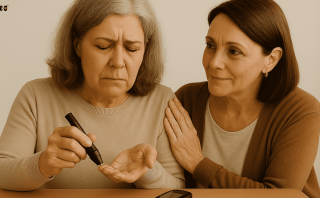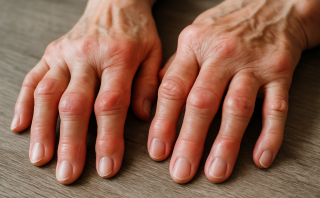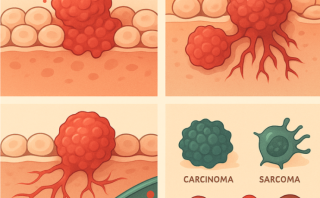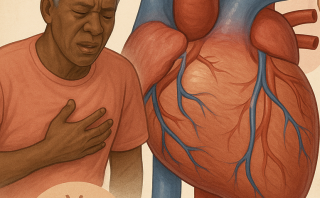Understanding Alzheimer’s Disease: A Simple and Friendly Guide
Alzheimer’s disease can feel overwhelming, but understanding its symptoms and treatment options helps families navigate the journey with clarity. Let’s break down the basics in a way that’s straightforward and easy to follow, whether you’re concerned for yourself, a loved one, or simply want to learn more.
What Is Alzheimer’s Disease?
Alzheimer’s is a brain disease that slowly destroys memory and thinking skills, eventually making daily tasks hard to handle on your own. At first, someone with Alzheimer’s might forget recent conversations or appointments, but remember things from years ago. As time goes on, other changes appear:
- Trouble focusing or making decisions
- Difficulty with regular activities, like cooking
- Feeling confused, lost, or frustrated—especially in the evenings
- Mood swings, such as sudden anger or sadness
- Problems with walking, balance, or coordination
- Trouble communicating or finding the right words
In the later stages, people with Alzheimer’s may not recognize family or friends and may need help with basic tasks like dressing, eating, or using the bathroom.
It’s most common in people over 65, and women are more likely to have it than men.
Some live with Alzheimer’s for only a few years, while others might live with it for decades on average, about 9 years.
Alzheimer’s vs. Dementia
People often mix up these terms, but here’s the key difference:
- Dementia is a general term for a group of symptoms affecting memory, thinking, and behavior.
- Alzheimer disease is the most common cause of dementia—a specific disease among many types.
The Stages of Alzheimer’s
Alzheimer’s develops over time, with symptoms growing more severe:
- Early Stage (Mild)
– Subtle memory loss—only close family and friends might notice
– Still able to drive and join social activities
– May lose track of things or struggle with planning - Middle Stage (Moderate)
– This stage lasts the longest
– Memory and confusion worsen, noticeable to others
– Personality changes and mood swings
– Trouble with daily life and more need for help - Late Stage (Severe)
– Need round-the-clock care
– May not recognize loved ones or surroundings
– Difficulty walking, sitting, swallowing, or communicating
What Causes Alzheimer’s?
Scientists don’t know the exact cause, but they’ve found some clues. In Alzheimer’s, two things happen in the brain:
- Tangles: Nerve cells become twisted and tangled.
- Plaques: Abnormal protein chunks (called beta-amyloid) build up, disrupting brain function.
There’s a protein in the blood called ApoE (apolipoprotein E) that may increase the risk of Alzheimer’s, but genetics are only one piece of the puzzle.
Is Alzheimer’s inherited?
It can be, but most cases aren’t directly passed down. Having a parent or sibling with Alzheimer’s raises your risk, but many people with Alzheimer’s don’t have a family history.
How Is Alzheimer’s Diagnosed?
Doctors usually start by asking questions about memory, thinking skills, behavior, and how these things affect daily life. It’s helpful to bring a close friend or family member along for their input.
Test may include-
- Memory and problem-solving tests
- Blood and urine tests to rule out other problems
- Brain scans (MRI, CT, or PET)
- Sometimes, a spinal tap
Signs and Symptoms
Symptoms vary from person to person and at different stages:
- Struggling with memory, judgment, or reasoning
- Trouble cooking, planning, or managing money
- Getting lost in familiar places
- Getting lost in familiar places
- Changes in mood, like withdrawal or delusions
- Loss of depth perception—tripping or falling more often
Early signs: Forgetting conversations, repeating questions, having trouble finding words in conversation.
Who Is Most at Risk?
The biggest risk factors are:
- Age: Most people with Alzheimer’s are 65 or older. After 65, your risk doubles about every 5 years.
- Family history: Risk is higher if a close relative has the disease.
- Genetics: Certain genes (like ApoE) increase risk, but don’t guarantee you’ll get Alzheimer’s.
- Other possible risks: High blood pressure, high cholesterol, severe head injuries, or belonging to certain ethnic groups (older Black adults are twice as likely as White adults, and Hispanic adults are about 1.5 times as likely).
Is There a Cure or Treatment?
There’s no cure yet, but some treatments can help slow the disease and make symptoms easier to manage.
- Disease-Modifying Drugs (for early stages):
– Lecanemab (Leqembi):Slows down disease progression in early Alzheimer’s
– Donanemab (Kinsula): A newer, FDA-approved infusion for mild cases - Symptom-Relieving Medications:
– Brexpiprazole: Helps with agitation
– Cholinesterase inhibitors: Make brain cells work better
– Memantine: Used in moderate to severe cases to improve function
Your doctor will recommend what’s best based on your symptoms and stage.
Possible Complications
Alzheimer’s makes everyday safety trickier. People may be at greater risk for:
- Falls and injuries
- Difficulty communicating pain or illness
- Infections, bed sores, or poor nutrition (especially in later stages)
What’s the Outlook?
Alzheimer’s is different for everyone, but most people live 4–8 years after diagnosis, and some live much longer. It’s a progressive disease, meaning symptoms get worse over time.
Can You Prevent Alzheimer’s?
There’s no guaranteed way to prevent it, but some healthy habits may lower your risk:
- Control blood pressure, especially in midlife
- Exercise regularly to protect both mind and body
- Eat a healthy diet (think lots of fruits, veggies, and whole grains)
- Care for your hearing treat hearing loss early
- Stay social keep up with friends and activities
- Protect your head wear helmets and remove fall hazards at home
Living Well With Alzheimer’s
A diagnosis is tough, but life doesn’t stop. Here are some ways to make things easier:
- Reduce stress: Get enough sleep, try deep-breathing, meditation, or tai chi
- Routine helps: Familiar schedules are comforting
- Stay mentally active: Read, do puzzles, try a new hobby
- Share your feelings: Sadness, anger, frustration—feel whatever you need
- Ask for help when needed: Don’t try to do everything yourself
- Find support: Support groups can be a lifeline for both patients and families
If You’re Caring for Someone With Alzheimer’s
Caregivers have a big job. Here are some tips to make daily life smoother:
- Medication management: Use pill organizers or reminders. Take over when needed.
- Stick to routines: Same meal, bed, and activity times each day work best.
- Lists and notes: Write things down to help with memory.
- Encourage independence: Let them do what they can, safely.
- Choose comfy clothes: Avoid tricky buttons and zippers.
- Safety-proof the home: Remove rugs, install grab bars, provide good lighting.
- Be patient, gentle, and clear: Speak respectfully and include your loved one in conversations.
Key Takeaways
- Alzheimer’s is a progressive brain disease that affects memory and thinking skills.
- It develops slowly, gets worse over time, and eventually requires more care.
- Age and family history are the biggest risk factors.
- Treatments can help manage symptoms, but there’s no cure—yet.
- Healthy lifestyle choices may lower your risk or help you live better with Alzheimer’s.
- Support can make all the difference—don’t be afraid to ask for help for yourself or a loved one.
Common Questions
Is Alzheimer’s inherited?
Only about 5% of cases are clearly inherited. Most cases aren’t passed directly from parent to child.
What’s the difference between Alzheimer’s and dementia?
Alzheimer’s is the most common type of dementia—but not the only one.
Does aggression happen in Alzheimer’s?
Anger and aggression sometimes appear in moderate or severe stages.
What’s the end of life like?
Late-stage Alzheimer’s often means needing help with all activities, from talking to swallowing. Palliative or hospice care can offer comfort for everyone involved
If you or a loved one is facing Alzheimer’s, know that you’re not alone.
Many resources and communities can offer support, information, and care. Taking each day as it comes and leaning on those around you can help make the journey more manageable.
Note: This article is for informational purposes only and is not intended as medical advice. Always consult a licensed healthcare provider for treatment decisions.




